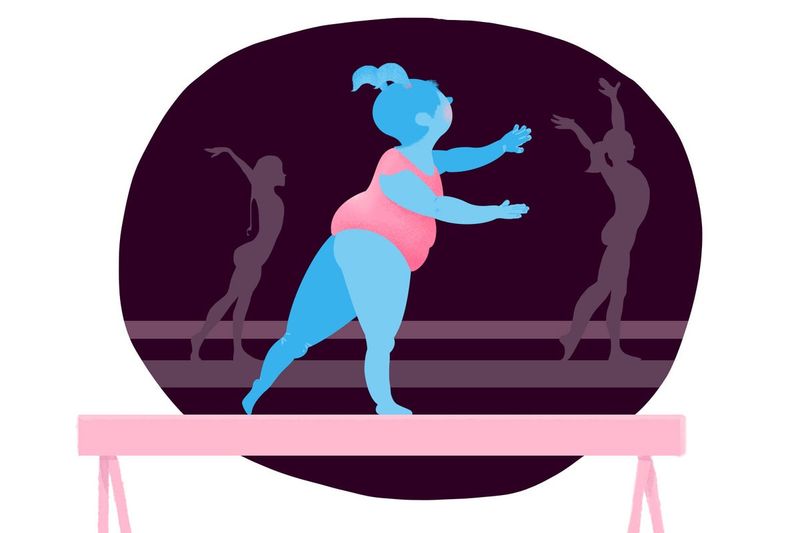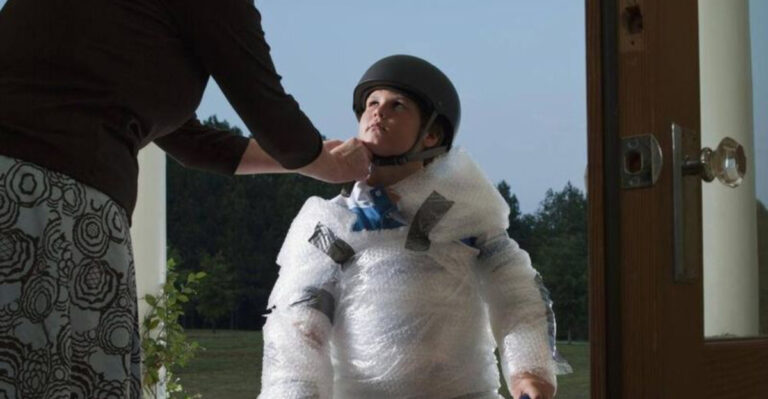19 Phrases You Should Not Say To A Teenager
Forget the pretty parenting quotes and the lectures about patience. If you’ve ever had a teenager roll their eyes at you or disappear behind headphones, you already know: words matter more than we admit.
Some phrases leave bruises that can last for years. Others just shut the whole conversation down. You don’t need to be a therapist to avoid landmines—you just have to remember what it felt like to be unheard, misunderstood, or dismissed.
Here are 19 things you should never say to a teenager, and what happens when you do.
1. “You’ll Understand When You’re Older”

Let’s be honest. Nothing makes you want to stop listening faster than someone telling you your opinions don’t count. This line lands like a brick—heavy, cold, final.
I remember sitting on my bedroom floor at fifteen, thinking, “Why even try?” That phrase didn’t just dismiss my point. It made me feel small. The worst part? It taught me to stop trying to explain myself. Later, I learned most adults didn’t have better answers—just better ways to dodge the hard talks.
If you want a connection, skip this phrase. Dig in now. Trust that their feelings make sense in their world, even if they don’t in yours. Because nothing grows in the dark except resentment.
2. “Why Can’t You Be More Like [Sibling/Peer]?”

Comparison stings. When you hear this, your brain doesn’t process, “Oh, I should try harder.” It sounds more like, “You’re not enough as you are.” That wound cuts deep, and it lingers.
There’s nothing inspiring about being told to copy someone else’s script. It’s like being handed a costume and told your real self isn’t the star of the show. I’ve watched friends lose their spark because they believed they could never live up to someone else’s highlight reel.
Did you know that constant comparison can actually lower motivation and self-esteem? Not just in the moment, but for years. Instead of building confidence, it builds walls. If you want to help a teen grow, notice what makes them different. Celebrate the weird, the awkward, the absolutely-not-like-anyone-else.
3. “I Wish You Were More Like Me When I Was Your Age”

If you ever want to watch a teen’s eyes glaze over, break out the old “when I was your age” routine. It’s classic, but not in a good way. It sounds like a trophy for surviving some mythical golden era that never actually existed.
Imagine being told that your current struggles don’t measure up because your parent walked uphill both ways in the snow—barefoot, probably. It doesn’t just sound dated. It makes your problems feel invisible. You can’t travel back in time to be the person your parent thinks they were.
Even if your intentions are pure, this phrase can make teens wish they were anyone except themselves. Instead, share stories, not standards. Let your past be a bridge, not a measuring stick. Real connection comes from admitting you didn’t have it all figured out either.
4. “You Should Lose/Gain Weight”

This line cuts straight to the core. A body isn’t just a body when you’re a teenager—it’s your whole identity, your shield, your favorite target. One careless comment can echo for years.
Tell a teen they should change their weight, and you’re not just talking about health. You’re talking about worth. Suddenly, every meal and every glance in the mirror turns into a test they can’t win. It’s a recipe for shame, not motivation.
I still remember my friend’s face when her mom said she’d be “so pretty if she just lost a few pounds.” She stopped eating lunch at school for months. Focus on health, sure, but make it about strength, not size. The world is already obsessed with numbers. Don’t let your home become another scoreboard.
5. “You’re So Lazy”

If you want to shut a door, call someone lazy. It doesn’t push them to do better. It just glues them to the couch, feeling stuck and misunderstood.
Teenagers are tired for real reasons—school, friends, anxiety, and a brain that’s still under construction. Labels stick. They become internal. Kids start to believe them, and then they act them out.
Instead of slapping on a label, ask what’s behind the lack of energy. Maybe they’re overwhelmed. Maybe they need help breaking things down. Don’t mistake exhaustion for lack of caring. At times the hardest thing is just showing up.
6. “You’ll Never Amount To Anything”

This is the nuclear option. Words like these have teeth—once they bite, they don’t let go. One cruel sentence can become the voice in someone’s head for years, whispering that they’re a lost cause.
It’s not tough love. It’s poison. I had a friend whose dad said this after a bad report card. She never forgot it. Instead of fighting harder, she stopped fighting at all. The pain didn’t push her to greatness. It froze her.
Maybe you’re scared for your kid’s future. Maybe you think shock will motivate change. It won’t. If you’re worried, say that. Say you’re scared. Say you love them, even when they mess up. Because belief builds, and doubt destroys. Kids remember exactly who told them they were nothing.
7. “You’re Too Young To Have An Opinion”

Remember the first time you thought for yourself and someone shut it down? It stings. Being told you’re too young for real opinions is the fastest way to make a teenager feel invisible.
What if someone did that to you at your job? Or in a relationship? Age isn’t a reason to dismiss someone. Teens notice things adults don’t, and their perspective can be sharp, even if it’s not always polished.
If you want teens to develop their voice, actually listen. Even if you disagree. Their opinions matter today, not just some distant tomorrow. Give them space to think out loud and they’ll grow braver, not quieter.
8. “Because I Said So”

When I hear “Because I said so,” I think: conversation over, respect optional. It’s a power play, not a reason. Teens can smell a shutdown line from a mile away.
Maybe you’re tired or you don’t have an answer. I get that. But this phrase builds walls instead of bridges. It tells your teen they don’t deserve an explanation. Eventually, they stop asking.
I’ve heard this more times than I can count. Every time, it made me feel smaller. If you don’t know what to say, just admit it. Honesty opens doors. If you need a break, ask for that, too. Treat teens like humans, not robots who follow orders.
9. “You Always…” or “You Never…”

Absolutes are cheap shots. “You always” and “you never” aren’t just exaggerations—they’re traps. They paint teens into corners with no way out, even if they messed up only once.
It’s tempting to use broad strokes when you’re angry. I’ve done it. But those words erase every time your kid tried to do better. They turn one mistake into a permanent label.
I remember my mom saying, “You never help around the house.” The truth? I did. Just not that day. The more she said it, the less I wanted to try. If you’re upset, talk about the moment, not the whole person. Don’t let a bad day become their whole story.
10. “Stop Crying, It’s Not A Big Deal”

Tears aren’t just water—they’re release, rebellion, truth. When someone tells you to stop crying, the message is: Your feelings don’t fit here. Stuff them down. Hide the mess.
I used to hold in every tear at school because I didn’t want to seem weak. But pain doesn’t disappear when ignored. It just burrows deeper. The worst is being told your heartbreak isn’t important enough to matter.
Telling a teen to “get over it” is like slamming a door on their heart. Instead, let them have their moment. Hold space for the mess. You don’t have to fix it—just don’t make them ashamed for feeling. Every now and then, a good cry is the bravest thing they can do.
11. “What Were You Thinking?”

This isn’t a real question—and teens know it. It’s a velvet-wrapped accusation, a way to say, “How could you be so dumb?” It doesn’t open a conversation. It shuts it down before it starts.
No one wants to explain themselves when they feel judged before they even open their mouth.
Teens mess up. So did we. Instead of asking this, try, “Help me understand what happened.” It’s not about excusing mistakes. It’s about keeping the door open. Curiosity builds trust. Judgment destroys it.
12. “That’s Just A Phase”

Ever have someone brush off everything you care about as a temporary glitch? That’s what this line feels like. It turns big feelings and real growth into a joke, something to roll your eyes at and wait out.
My best friends dad said this to her when she dyed her hair blue. But it wasn’t a phase. It was her way of showing who she was becoming. Teens are trying on identities, but that doesn’t mean their experiences are fake.
Phases are the realest thing in the world. Dismissing them just makes teens feel like nothing matters until they’re older. Take their weirdness seriously. That’s how you stay close when they change again tomorrow.
13. “You’re Overreacting”

If you want to make someone feel crazy, tell them they’re overreacting. It’s like saying, “Your feelings are too big for this room.” It’s a shortcut to making them doubt themselves for life.
The teenage brain is wired for drama, sure. But that doesn’t mean the feeling isn’t real. The pain feels huge to teens, and being dismissed makes it worse.
Instead of judging the size of their feelings, get curious. Ask why it matters so much. Don’t minimize, even if it seems silly. Today’s “overreaction” might be tomorrow’s big memory.
14. “You’re Grounded Until Further Notice”

Grounding can feel like exile. When you hear “until further notice,” there’s no hope, no timeline, no chance for redemption. It’s more punishment than lesson, and it rarely leads to anything but resentment.
Teens need clear limits, but they also need a way back. Open-ended punishments just make the rules feel pointless.
If you need to set boundaries, do it with a path forward: “Here’s what needs to change, and here’s how you earn back trust.” That way, it’s not just about losing freedom—it’s about building it again. Accountability beats endless lockdown any day.
15. “Why Can’t You Just Be Happy?”

Everyone has their storm. Telling someone to “just be happy” is like putting a band-aid on a broken bone. It makes sadness feel like a failure instead of a feeling.
When I was a teen, my sadness didn’t need a fix. It needed a witness. Someone willing to sit in the dark with me without hurrying me into the light. Telling me to snap out of it made me dig in deeper.
If a teen is struggling, ask questions instead. Offer space to talk, or just to be. Happiness isn’t a switch. The best you can do is show up, even when you can’t change the weather. That’s enough.
16. “If You Keep Acting Like This, No One Will Like You”

When you tell a teen their attitude will cost them friends, you’re not teaching manners—you’re planting fear. It’s the fastest way to make someone question every word they say.
When they get shut down or criticized like this, it can make them replay conversations in their head, worrying they said the wrong thing. They feel like they’re too much, and that doesn’t help them figure out how to adjust.
Teens are already hyper-aware of fitting in. Use encouragement, not blackmail. Highlight what you appreciate in how they relate to others. If something needs to change, talk about actions, not popularity. Self-worth shouldn’t hinge on pleasing the crowd.
17. “You Don’t Know What Real Stress Is”

Brushing off a teen’s stress just because you’ve had “bigger” problems is like saying their shoes don’t hurt just because yours hurt more. Pain is pain—no matter how old you are.
Their stress is just as real. Growing up is hard—and just because someone else is carrying more doesn’t mean their load is light.
Validation isn’t a contest. It’s about saying, “Yeah, this is tough for you right now,” and meaning it. If a teen says they’re stressed, believe them. You don’t have to compare scars to show you care. Just listen. That’s how the door opens.
18. “As Long As You Live Under My Roof…”

Some phrases are code for, “Don’t bother arguing.” This one is the king of them all. It turns a disagreement into a dictatorship, with the threat that love is conditional on obedience.
Every kid wants to feel safe at home. But when you say this, you turn home into a battlefield. The room might be theirs, but the rules say otherwise. It’s about power, not partnership.
I heard this every time I pushed back on rules I didn’t understand. It didn’t make me grateful. It made me want to leave. If you want real respect, share your reasons and let your teen have a voice—even if your answer is still no. That’s how trust survives the storm.
19. “You’re Just Being Difficult”

It’s funny how often “difficult” really means “different.” Teens push back because they care. When you call them difficult, you turn curiosity and courage into a character flaw.
My little sister was always the “troublemaker” in class. She wasn’t mean—she just questioned everything. Her teachers called her difficult. Now, she’s the bravest adult I know. That fire didn’t go away—it just stopped burning for people who didn’t care to understand it.
If a teen is pushing your buttons, ask what’s behind it. Sometimes “difficult” means “trying to make sense of the world.” Channel that energy. Don’t stamp it out. The best leaders were always someone’s problem child first.







